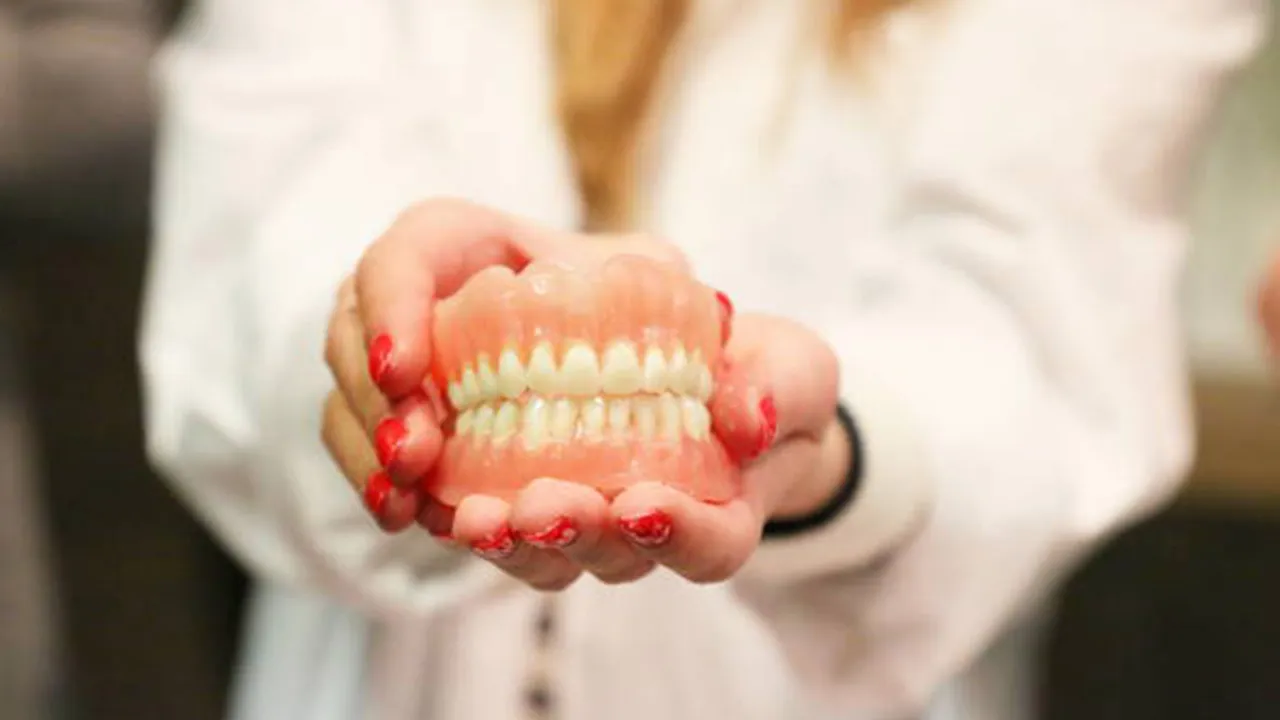9 Signs You Need Help With Fixed Prosthodontics
The Best Fixed Prosthodontics Tips
Dentures are removable devices that can change missing teeth and assist restore your smile. If you've lost all of your natural teeth, whether from gum illness, tooth decay or injury, changing missing teeth will benefit your look and your health. That's since dentures make it much easier to eat and speak better than you could without teeth-- things that people typically consider granted.
Dentures can assist submit the look of your face and profile. They can be made to carefully resemble your natural teeth so that your appearance does not alter much. Dentures may even improve the appearance of your smile. Traditional. This complete removable denture is made and placed in your mouth after the staying teeth are removed and tissues have recovered, which might take a number of months.
Signs You May Need Complete Denture
This detachable denture is placed on the same day that the remaining teeth are eliminated. Your dental expert will take measurements and make designs of your jaw during an initial go to. You don't need to lack teeth during the recovery period, however might require to have the denture relined Denture Sealant or remade after your jaw has actually healed.
Often some of your teeth can be saved to Periodontitis maintain your jawbone and offer stability and support for the denture. An overdenture fits over a small number of remaining natural teeth after they have been prepared by your dental practitioner. Implants can serve the very same function, too. New dentures might feel uncomfortable for a couple of weeks until you end up being familiar with them.
Our Methodology for Dental Prosthesis
It is not unusual to experience small irritation or pain. You may discover that saliva circulation temporarily increases. As your mouth ends up being accustomed to the dentures, these problems ought to disappear. Follow-up appointments with the dental professional are normally needed after a denture is placed so the fit can be inspected and changed.
Even if you wear full dentures, you still need to practice excellent oral health. Brush your gums, tongue and roof of your mouth every morning with a soft-bristled brush prior to you insert your dentures to stimulate blood circulation in your tissues and assist eliminate plaque. Rinse your dentures prior to brushing to get rid of any loose food or debris.
Signs You May Need Denture Adhesive
When brushing, tidy your mouth completely-- including your gums, cheeks, roofing of your mouth and tongue to remove any plaque. This can help in reducing the danger of oral inflammation and foul breath. When you're not wearing your dentures, put them in a safe location covered in water to keep them from contorting.
Adhesives can be found in many forms: creams, powders, pads/wafers, strips or liquids. If you utilize among these products, checked out the guidelines, and use them precisely as directed. Your dental professional can suggest appropriate cleansers and adhesives; search for items with the ADA Seal of Acceptance. Products with the ADA Seal have been examined for security and effectiveness.
Primary Principals of Fixed Prosthodontics
Make certain to arrange regular dental examinations, too. The dental professional will examine your mouth to see if your dentures continue to fit correctly.
What are dentures? What are the various kinds of dentures? How are dentures made? Exist alternatives to dentures? Will dentures affect the method of a person looks, feels, eats, and speaks? Are dentures used throughout the day? How does one take care of dentures? Should I use denture adhesive? How much do dentures cost? Does oral insurance cover the cost of dentures? For how long do dentures last? When an individual is missing out on teeth, she or he might experience a range of issues.
Our Guide for Partial Looseness
Dentures are appliances that are customized made to change an individual's missing teeth and bring back the appearance and oral functions that were lost. The denture can be either a complete denture or a partial denture. A full denture is utilized when all of the individual's teeth are missing out on and a partial denture is utilized when only some of the teeth are missing.

The standard complete denture is kept in the mouth by forming a seal with the gums. They can likewise be kept in place by connecting to dental implants that are surgically placed in the bone of the jaws. This treatment is a lot more pricey than the traditional total denture. Partial Dentures: Partial dentures can either be made with a plastic base or a metal structure that supports the number of teeth that require to be changed.
Signs You May Need Partial Dentures
The partial denture that uses a metal structure is the conventional design, due to the rigidness and strength of the metal. Plastic partial dentures have actually typically been used as emergency or momentary replacements of missing teeth, enabling the gums and bone to recover prior to a conclusive restorative solution is gotten.


After a tooth is extracted or lost, the tooth socket starts to complete with bone and the gum tissue heals and modifications shape. This procedure takes a couple of months until the gums and bone reach a steady shape. After this time a conventional complete denture is made, ideally about 8 to 12 weeks after the teeth were extracted or lost from the mouth.